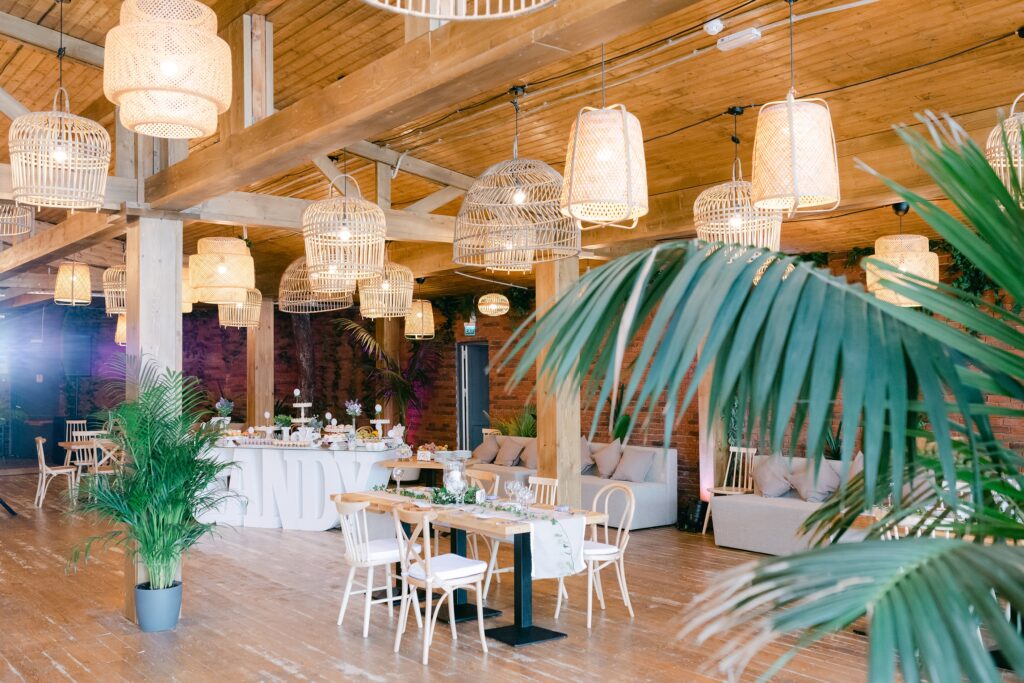In a world increasingly conscious of its environmental footprint, the choice of venue for events plays a pivotal role in underlining the commitment to sustainability.
Selecting a sustainable venue is not just about reducing environmental impact but also about making a statement of intent, showing that every aspect of an event is aligned with eco-friendly principles.

Embracing Energy Efficiency
The cornerstone of a sustainable venue is its approach to energy management. This encompasses the use of renewable energy sources, such as solar panels or wind turbines, to power the facility.
Energy-efficient lighting, heating, and cooling systems are also essential. These systems not only reduce the venue’s carbon footprint but can significantly cut down operational costs, making them a financially viable option in the long term.
Waste Management and Reduction Strategies
Waste production is an inevitable part of any event, but sustainable venues take proactive steps to minimise this impact.
Comprehensive recycling programs, the use of biodegradable materials, and strategies to reduce food waste are critical. Venues that offer facilities for composting and partnerships with local recycling services demonstrate a strong commitment to this aspect of sustainability.
When venue sourcing for events, it’s crucial to consider how a venue manages water resources. Sustainable venues implement systems for water conservation, such as low-flow toilets and water recycling systems.
These measures are not only environmentally responsible but are also increasingly expected by attendees who are environmentally conscious.
Local and Sustainable Supply Chains
A sustainable venue extends its eco-friendly ethos beyond its walls by engaging with local and sustainable suppliers. This approach supports the local economy and reduces the carbon footprint associated with transporting goods over long distances.
Venues that prioritise locally sourced food and beverages or materials for event construction contribute significantly to a more sustainable event industry.
Green Building Certification
Accreditations and certifications from recognised bodies provide an objective measure of a venue’s sustainability credentials.
Look for venues with certifications such as LEED (Leadership in Energy and Environmental Design) or BREEAM (Building Research Establishment Environmental Assessment Method). These certifications are a testament to the venue’s commitment to environmental stewardship and sustainable operations.
Innovative Technology and Sustainable Practices
Advancements in technology have opened new avenues for sustainable practices in event venues. Smart building systems that optimise energy use, digital ticketing to reduce paper waste, and virtual event options to decrease travel-related emissions are examples of how technology can enhance sustainability.
Moreover, carbon offsetting for events or initiatives to engage attendees in sustainability efforts can significantly boost a venue’s overall green credentials.
Charting the Course for a Greener Future
Selecting a sustainable venue reflects a broader commitment to environmental responsibility. From energy efficiency and waste management to supporting local communities and obtaining green certifications, these features are not just niceties but necessities in today’s event planning landscape.
Ultimately, choosing a sustainable venue becomes a powerful catalyst for wider change, driving the event industry towards a more responsible and environmentally conscious future.

